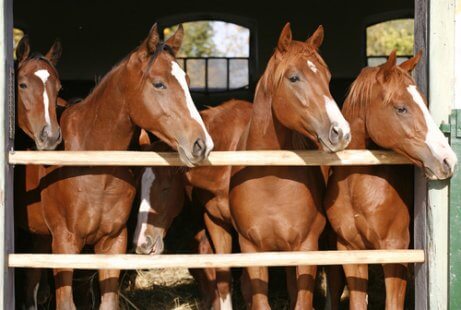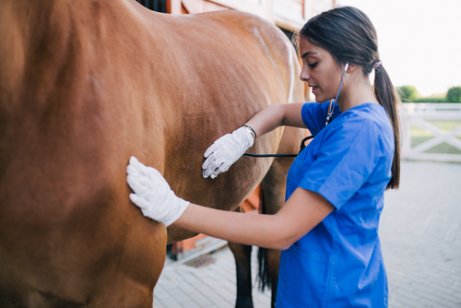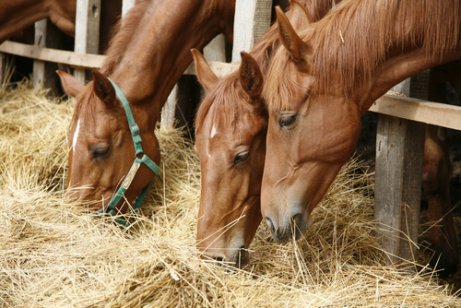Horse Flu: Causes and Symptoms You Should Know

Respiratory diseases are fairly common in the equine sector. One that causes the most financial and health problems, however, is horse flu. Preventing your horse from contracting this disease is the best way to fight it.
Although this disease isn’t deadly, the rapid spread of the virus makes it almost impossible to stop it from spreading in an affected area. It has a contagious capacity of up to 100 feet.
Preventing horse flu
Vaccinating horses is the best way to avoid this disease. The moment a horse contracts horse flu, and keeps in contact with other horses, its spread is very likely.
The incubation period for horse flu, also known as equine influenza, is from one to five days. In other words, the animal can have the virus for this length of time without showing symptoms.

Once the horse is 6 months old, you can give it the first dose of the vaccine. Then, after one month, you can re-vaccinate. Another dose should be given every 6 to 12 months. The vaccinations necessary will depend on what the animal is exposed to and how much it interacts with horses outside their natural environment.
In the case of pregnant mares and younger horses, you need to be very careful, as it can cause an abortion or weaken the animal significantly.
Additionally, dirty stables greatly increase the chances of getting horse flu and encourages the spread. In other words, hygiene is crucial to avoid potential problems. You should also use different utensils for each horse to prevent the spread of the disease if the animal is sick.
Once a horse has been diagnosed with horse flu, you need to isolate the animal to avoid contagion with other horses. People treating the horses also need to be sure to clean themselves before touching another animal.
Symptoms
The most recognizable symptom is a dry cough or grunting sounds that the horse produces as an attempt to breathe better. You also should monitor its temperature, as another symptom is a temperature of around 104 degrees Fahrenheit.

The animal may also be lethargic, low energy, and have a sudden lack of appetite. This can cause weight loss, which may be severe in some cases.
Other symptoms include having swollen lymph nodes and difficulty breathing as a result. There may also be mucous secretions of a greenish yellow color, and ocular secretions, produced by conjunctivitis.
The animal will show signs of weakness a few days after becoming infected, but within a week it will show obvious symptoms. You’ll notice a slow walk and low energy, as well as isolating themselves from the group.
Treating horse flu
Once the animal is isolated from the rest of the horses to avoid further infection, it’s important to let the animal rest in a quiet environment. This will let him fight the disease. This place should be clean and free of dust, so that it doesn’t further aggravate the horse’s breathing.
You can also use anti-inflammatories to help with fever and pain. If the horse has some other infection as well, you should use antibiotics until it goes away.

Adjusting the horse’s diet will also help reduce any weight loss. Normal food will be difficult for the horse to swallow. Including moist food will help the horse eat better and give him enough energy for a speedy recovery.
We recommend rest for 15 days after the disappearance of symptoms to avoid a relapse. This way, you ensure the complete recovery of your horse. Then, after a few days of physical activity, he should recover his performance and strength to the full again.
All cited sources were thoroughly reviewed by our team to ensure their quality, reliability, currency, and validity. The bibliography of this article was considered reliable and of academic or scientific accuracy.
- https://www.zoetis.es/conditions/caballos/influenza-equina.aspx
- https://blog.terranea.es/gripe-equina/#Prevencion_de_la_gripe_equina
- https://www.equusline.es/blog/influenza-gripe-equina/
This text is provided for informational purposes only and does not replace consultation with a professional. If in doubt, consult your specialist.